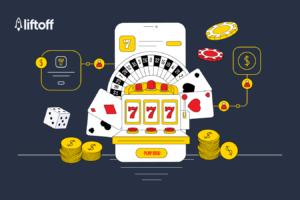Belgium: online overtakes land-based gaming for first time

The Belgian Gambling Commission says the figures show online gambling deserves “special attention” to protect consumers.
Belgium.- The Belgian Gambling Commission has published its annual report for 2021 showing that revenue fell 17.8 per cent year-on-year to €969.1m due to the impact of the Covid-19 pandemic on land-based gaming venues. Revenue was €1.18bn in 2019-20 and €1.12bn in 2018-19.
Online gambling generated more revenue than land-based for the first time, with more than 60 per cent of the 2020-21 total (€595.6m) generated online. Revenue from online gambling rose 27.9 per cent year-on-year. Land-based revenue fell 47.7 per cent year-on-year to €373.2m.
Online casino revenue came in at €277.9m (46.6 per cent of all online revenue) while online slots generated €156.8m (a rise of 26.3 per cent year-on-year) and online sports betting revenue rose 27.1 per cent to €161.2m.
Retail restrictions due to the Covid-19 pandemic caused land-based revenue to fall across the board. Sports betting generated a third of all retail gambling revenue at €123.6m. Café slots generated €113.7m, arcades revenue came in at €81.1m and casino revenue at €54.9m.
The Belgian gambling market in 2021
The regulator reported that 576,493 players gambled online at least once a week last year, a rise from 502,738 in 2019-20. The average number of unique players rose from 113,302 to 136,888 and 162,985 new players signed up for online gambling accounts.
Meanwhile, the number of retail players fell from 11,167 to 10,684. The Belgian Gambling Commission added 122 websites to its blacklist of illegal operators, and another 60 sites voluntarily blocked access to Belgian players.
BGC chair Magali Clavie said: “The year 2021 was marked by the ongoing health crisis and successive closures that again hit physical gaming establishments hard after their gross margin had already fallen by 47% in 2020.
“Online gambling did grow. In 2021, there were an average of 136,888 players online per day, twice as many as three years ago. This form of gambling surpassed physical gambling for the first time and deserves special attention because it is more accessible, both in space and time, and can pose a risk factor for gamblers.
“It is more necessary than ever to protect online players and gamblers by providing them with a safe and controlled gaming environment. This objective requires that every effort be made to prevent them from being tempted, consciously or not, to turn to an increasingly large and aggressive illegal offer that provides no protection and undermines the channelling policy.”
The Belgian Minister for Justice Vincent Van Quickenborn has proposed a total ban on gambling advertising in the country. He’s pushing for the introduction of a royal decree that would ban most advertising by the end of this year and would give sports teams until the end of 2024 to drop gambling marketing deals.
According to the Belgian newspaper De Tijd, Van Quickenborn’s proposed ban would cover ads for all types of gaming, both online and land-based, with the only exception being the Belgian National Lottery.
For its part, the Belgian Gambling Commission has proposed strict measures on gambling advertising but stopped short of calling for a blanket ban. It wants a limit on gambling ads, a ban on personalised ads targeted at certain groups of players and more power to act quickly when rules are broken.











